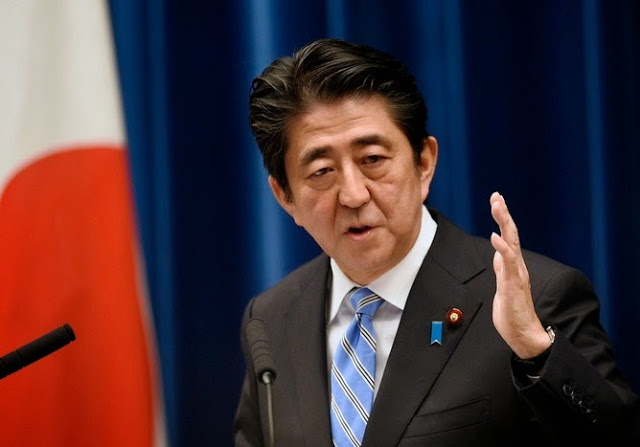
China’s Friendship Treaty: a Distraction from South China Sea Diplomacy
November 24, 2014
Standing Watch: Taiwan and Maritime Domain Awareness in the Western Pacific
December 16, 2014By Kota Takahashi |
On 18 November, Japanese Prime Minister Shinzo Abe announced that he will hold a snap election for the lower house of the Diet following his decision to postpone the increase of a consumption tax originally scheduled for April 2015. Very few observers, if any, anticipated an election just a few weeks ago; there was no national election scheduled until 2016, and the ruling coalition between the Liberal Democratic Party (LDP) and New Komeito held majorities in both houses of the Diet. Taking these conditions into consideration, two factors help explain the rationale behind Abe’s decision to hold a snap election.
Intra-party Power Struggle within the LDP
The LDP has dominated post-war Japanese politics for all but four years since it was founded in 1955. Absent a competitive opposition party capable of challenging the LDP’s rule, political competition took place among various factions within the LDP for decades. Though the influence of factions has waned over recent years, such traditions still remain in the LDP. In the case of a leadership transition, it would be more likely for Abe to be thrown out of power by other LDP politicians than by opposition parties, given that the election for the LDP president—i.e. the prime minister—is coming up next fall.
The most threatening rival for Abe is Shigeru Ishiba, former Minister of Defense and currently the Minister for Vitalizing Local Economy. Though he lost against Abe, Ishiba overwhelmed him in the initial voting of the previous LDP presidential election in September 2012 by attracting support from local voters. Since then, Ishiba effectively bolstered his inner-LDP power base during his previous tenure as the Secretary-General of the LDP (de-facto head of the party) and continues to enjoy high public popularity. It is widely believed that Ishiba might challenge and possibly defeat Abe in the 2015 LDP presidential election.
Another intra-party concern for Abe is posed by the fiscal hawks within the LDP. This group, who emphasize the importance of maintaining a balanced budget and pressured Abe into raising the consumption tax as scheduled, include influential factional czars of the LDP such as Taro Aso (current Deputy Prime Minister and Minister of Finance and former Prime Minister) and Sadakazu Tanigaki (current Secretary General of LDP and former President of the LDP). Abe has significantly raised the risk of losing his intra-party support by rejecting their demands.
Facing these challenges from within his own party, it was urgent for Abe to rebuild his political foundation within the LDP by gaining strong public backing for his economic initiatives. Indeed, he framed his justification of the tax-hike delay as one of the key agendas of the election, which is, with the exception of LDP fiscal hawks, supported by most Japanese politicians.
Abenomics
Another factor contributing to Abe’s rationale for calling a snap election is the shortcoming of the so-called “Third Arrow†of Abenomics. The other two “arrows†of Abe’s three-pronged economic policy—monetary easing and fiscal stimulus—succeeded in boosting the Japanese economy, but analysts agree that the “Third Arrow†of structural reforms is essential for maintaining long-term growth of the Japanese economy.
Despite its initial optimism, the Abe administration has so far failed to fulfill its economic promises vis-à -vis the “Third Arrow.†One of the reasons is the intransigent bureaucracy, such as the Ministry of Health, Labor, and Welfare’s resistance against labor reforms and restructuring of the Government Pension Investment Fund. Abe’s reform plans have also been blocked by interest groups, most notoriously by the JA-ZENCHU (Central Union of Agricultural Co-operatives) which opposes domestic agricultural reforms and Japan’s participation in the Trans-Pacific Partnership (TPP).
Abe’s initial plan to push through reforms lost momentum after his popularity declined due to other unpopular policies and cabinet member scandals. His branding of this snap election as “the referendum on Abenomicsâ€Â signifies that Abe is seeking a mandate from voters to implement the critical agenda of his economic policy.
Looking Ahead
Given the disarray of opposition parties and the relatively high popularity of the LDP, the ruling coalition is unlikely to be forced out of power in this election. However, this does not directly translate into a decisive victory for Abe. Any substantial loss of seats, especially if the ruling coalition were to lose the absolute majority (two-thirds of total seats), can lead up to a movement within the LDP to overthrow Abe in next year’s LDP presidential election. Even a decisive electoral victory cannot guarantee a smooth implementation of Abe’s reform policies as the landslide victory in the 2012 election accomplished little in this regard. Either way, the stakes are very high for both Abe and Abenomics.
Implications for the U.S.-Japan Alliance
Diplomacy and security policy are not high on the voters’ agenda; in a recent poll, only 7% answered that diplomacy and security policy are high on their checklist, compared to 30% for economic policy. However, there will still be repercussions to the U.S.-Japan alliance. Abe recently suffered a defeat in Okinawa’s gubernatorial election in which a candidate opposing the relocation of Futenma Air Base to Henoko prevailed over the pro-Abe incumbent, and any election results that can be interpreted as a lack of public support for Abe can pose further challenges to the central piece of U.S.-Japan alliance. The same can be said about legislation amendments to implement the new constitutional interpretation on collective self-defense, which is scheduled early next year. On the positive side, TPP negotiation might see a breakthrough in the difficult issue of Japanese agriculture if Abe can propel his economic reforms with this election. All issues being vital elements of the U.S. “Rebalance to Asia,†the success of American Asia policy is arguably at stake in this election.




